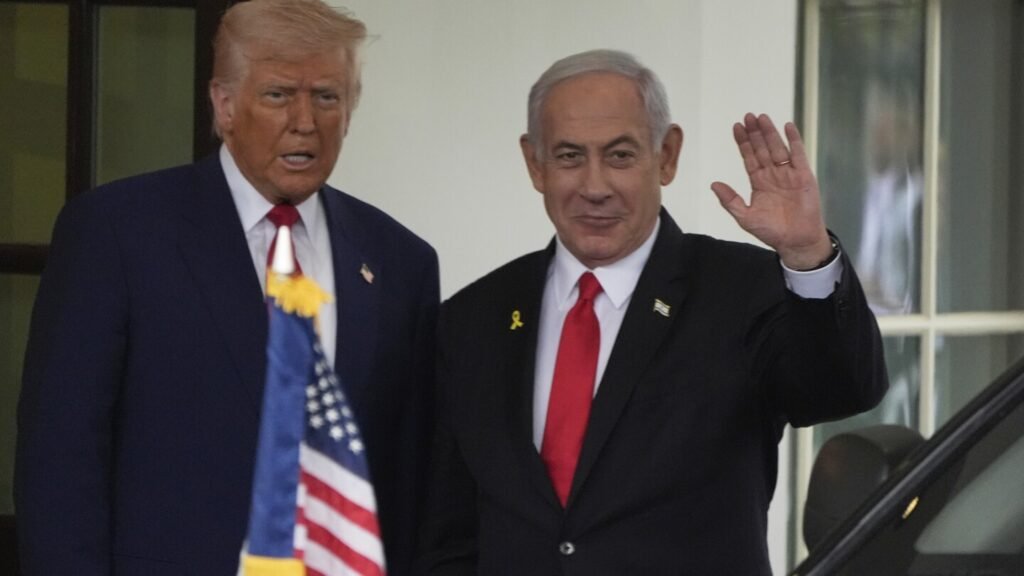TEL AVIV, Israel (news agencies) — Israeli Prime Minister Benjamin Netanyahu and U.S. President Donald Trump might look to take a victory lap on Monday after their recent joint strikes on Iran, hailed by both as an unmitigated success.
But as they meet for the third time this year, the outwardly triumphant visit will be dogged by Israel’s 21-month war against Hamas in Gaza and questions over how hard Trump will push for an end to the conflict.
Trump has made clear that following the 12-day war between Israel and Iran, he would like to see the Gaza conflict end soon. The meeting between Trump and Netanyahu could give new urgency to a U.S. ceasefire proposal being discussed by Israel and Hamas, but whether it leads to a deal that ends the war is unclear.
“The optics will be very positive,” said Michael Oren, a former Israeli ambassador to Washington. “But behind the victory lap are going to be some very serious questions.”
Before departing for Washington on Sunday, Netanyahu praised the cooperation with the U.S. for bringing a “huge victory over our shared enemy.” He struck a positive note on a ceasefire for Gaza, saying he was working “to achieve the deal under discussion, on the terms we agreed to.”
“I think that the discussion with President Trump can certainly help advance that result, which all of us hope for,” Netanyahu said.
Israel and Hamas appear to be inching toward a new ceasefire agreement that would bring about a 60-day pause in the fighting, send aid flooding into Gaza and free at least some of the remaining 50 hostages held in the territory.
But a perennial sticking point is whether the ceasefire will end the war altogether. Hamas has said it is willing to free all the hostages in exchange for an end to the war and a full Israeli withdrawal from Gaza. Netanyahu says the war will end once Hamas surrenders, disarms and goes into exile — something it refuses to do.
Trump has made it clear that he wants to be known as a peacemaker. He has repeatedly trumpeted recent peace deals that his administration facilitated between India and Pakistan, the Democratic Republic of Congo and Rwanda, and Israel and Iran, and for years has made little secret of the fact that he covets a Nobel Peace Prize.
He has been pressuring Israel and Hamas to wrap up their own conflict, which has killed tens of thousands of Palestinians, ravaged Gaza, deepened Israel’s international isolation and made any resolution to the broader conflict between Israel and the Palestinians more distant than ever.
But the precise details of the deal, and whether it can lead to an end to the war, are still in flux. In the days before Netanyahu’s visit, Trump seemed to downplay the chances for a breakthrough.
Asked on Friday how confident he was a ceasefire deal would come together, Trump told reporters: “I’m very optimistic — but you know, look, it changes from day to day.”
On Sunday evening, he seemed to narrow his expectation, telling reporters that he thought an agreement related to the remaining hostages would be reached in the coming week.
Those mood swings also have embodied Trump’s relationship with Netanyahu.
After Trump’s decision to get involved in Israel’s war in Iran with strikes on Iranian nuclear sites, the two leaders are more in sync than ever. But that’s not always been the case.
